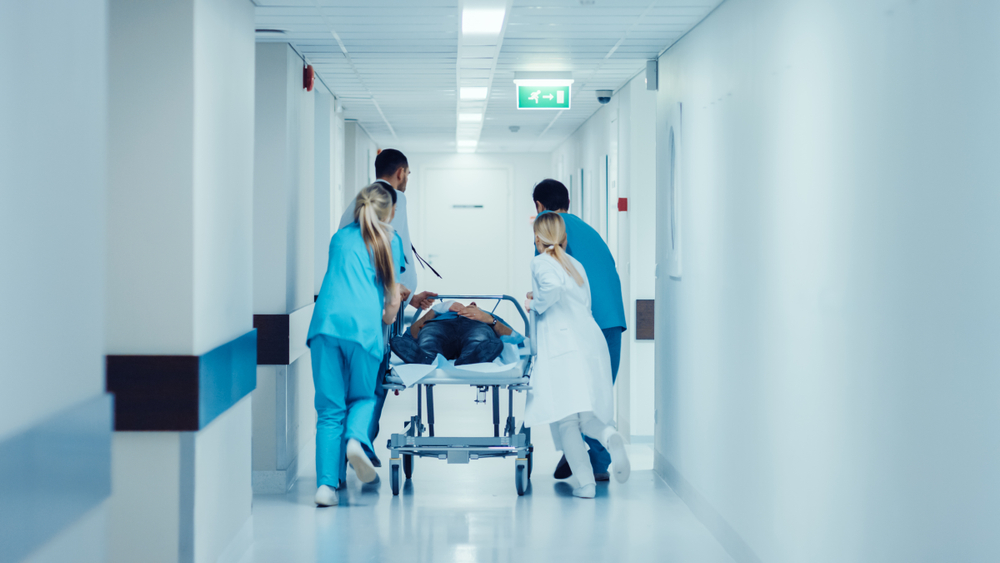Paramedics are available around the clock to provide life-saving treatments and first aid to individuals of all ages and backgrounds. Despite the stress and trauma they endure each day, they continue to give their all and sacrifice their well-being for others.
Join us, and millions around the world, on July 8 to honor paramedics and raise awareness about the importance of mental health care for our first responders.
What is International Paramedics Day?
International Paramedics Day is a global holiday celebrating the role of paramedics in the community and in healthcare. It is recognized on July 8 each year, commemorating the importance of paramedics and the birthday of Dominique Jean Larrey, the father of modern-day ambulance services.
Each year, International Paramedics Day follows a theme to emphasize an aspect of appreciation for these brave first responders. This year’s theme is “The Difference We Make,” highlighting how their duties, responsibilities, and sacrifices significantly impact patient outcomes.
The main components of International Paramedics Day include:
- Publicly showing appreciation to paramedics and EMT workers for all they do.
- Raising awareness about the importance of mental health care for paramedics.
- Raising awareness about their duties and responsibilities.
- Celebrating paramedics who go above and beyond the call to duty and how this changed someone’s life.
- Teaching children about paramedics’ important role in the community and health care.
The Role of Paramedics
Paramedics are often the first to arrive on the scene of an emergency. They are the first faces a person sees in their most vulnerable state, the voices of reassurance they will most likely hear, and the first to administer treatment to save their lives. As such, they play a crucial role in reducing the risk of further complications and improving survival odds—welcome prospects to anyone in an emergency.
Daily tasks a paramedic will often perform on their shift include:
- Providing lifesaving treatment to individuals in critical condition. This includes administering CPR to keep someone’s heart pumping, Narcan to reverse an overdose, or a tourniquet to stop profuse bleeding.
- Transporting injured or ill patients to the nearest trauma center.
- Transporting patients from one medical facility to another.
- Providing ambulance services for individuals who need assistance returning home.
- Performing minor medical procedures during a mass casualty event.
- Calmly interacting with mentally unstable individuals to get them to a treatment facility.
- Providing medications to chronically ill patients on the way to a hospital.
- Assessing a patient’s condition and taking vital information, such as family history, substance abuse history, and medical history, before they arrive at the hospital.
- Teaching the public how to keep themselves safe in an emergency.
- Attending first aid workshops.
Challenges and Resilience
Since paramedics are often the first to arrive at the scene of an emergency, they are constantly exposed to trauma. Although this is part of being a paramedic, it doesn’t get easier. Re-exposure to trauma is one of the reasons paramedics, first responders, and veterans develop a condition called post-traumatic stress disorder at a much higher rate than the general public.
Post-traumatic stress disorder (PTSD) is a condition that causes an individual to feel anxiety and have flashbacks and nightmares regarding a traumatic event. They may lose interest in things they once found pleasurable and feel intense fear even after the trauma is over.
People with PTSD require therapy and sometimes medication to heal. However, first responders are less likely to seek out these treatments for fear of being stigmatized or losing their jobs. The unfortunate consequences of not receiving help are worsening mental health and an increased risk of developing a substance use disorder.
Currently, between 16% and 40% of first responders feel they have difficulty controlling the amount of alcohol they drink and often use alcohol as a way to cope with the stressful feelings they relive each day. Some also abuse illegal drugs or prescription medications to cope.
Highlighting the importance of mental health care for paramedics can help reduce the stigma surrounding PTSD, anxiety, and substance use treatment.
Ways to Support Our Paramedics
Looking for a way to support your local paramedics?
Try one of the following ideas on International Paramedics Day:
- Approach a local paramedic and thank them for their service.
- Write a letter to your local ambulance service expressing your gratitude.
- Send them a thank-you card signed by as many community members as possible.
- Share posts on your social media page pinpointing the importance of International Paramedics Day.
- Offer to cover lunch for a paramedic on break.
- Learn first aid techniques.
- Volunteer at one of your local ambulance depots.
- Donate money to organizations that provide mental health care and counseling services to paramedics.
Conclusion
On International Paramedics Day, let’s recognize the sacrifices made by our local paramedics as they serve their communities. No matter how you choose to show your appreciation, remember that even small gestures can make a big difference.
If you know a paramedic who is struggling with drug or alcohol use, consider sharing information about treatment programs that can help them on the path to recovery.
Summit Detox offers a range of programs designed for first responders dealing with substance use disorders and co-occurring mental health conditions. Reach out to our intake specialists for more detailed information.



